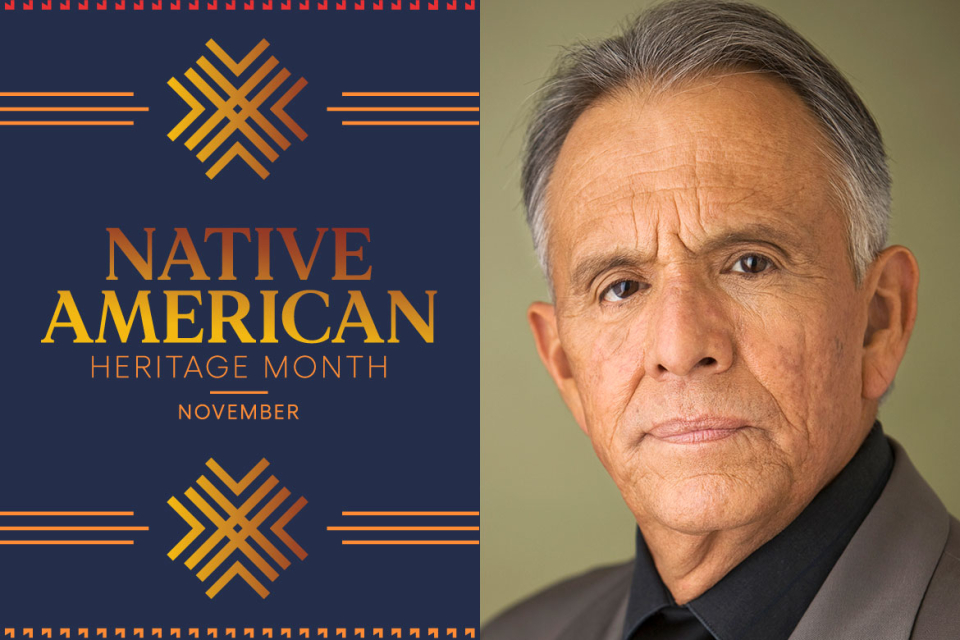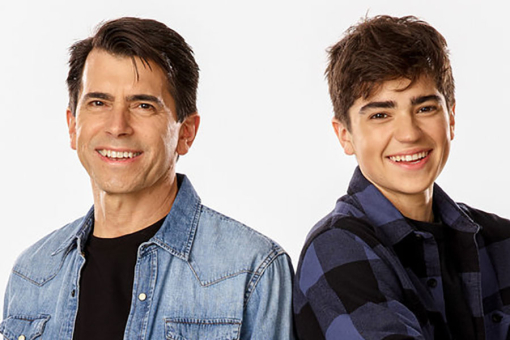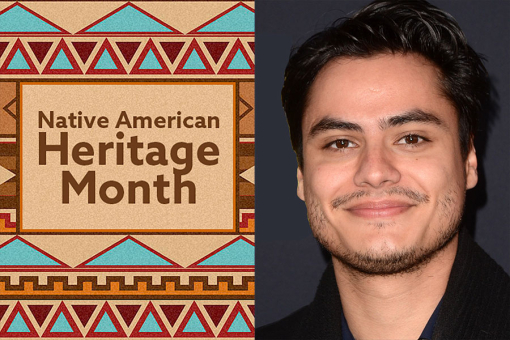Growing up in Lawton, Oklahoma in a neighborhood that was Comanche and Kiowa, the legacy of Geronimo and all he represented to the Native American community was never far from Rudy Ramos's mind.
The iconic Apache leader had spent the last few decades of his life at nearby Fort Sill and many years later, Ramos would portray him in a one-man stage show.
In the late 1960s, Ramos had dropped out of college and moved to Los Angeles to pursue acting and in short order, nailed down a prime role in a hit TV Western, NBC's The High Chaparral. He played Wind, a teenager born of a white father and a Native American mother looking to forge his own path when he wasn't accepted by either ethnicity.
"It was a new character in the fourth season and they saw at least 100 actors, probably most of them white guys," says Ramos. "On that day in 1971 there were not many Native actors. It was a real process. It's better now. Casting would be content to find someone who looked Native, and most of the roles were very stereotypical and insulting. What I played was me: a half breed, half Native."
The High Chaparral was also notable in that it featured other actors of color including Puerto Rican-born Henry Darrow and Argentinian Linda Cristal, who starred alongside Cameron Mitchell.
All three of those actors took him under their wing, making him feel welcome as they shot on location in Arizona.
Yet as his career took off and he gained a global following for playing young Wind, Ramos saw that the majority of the entertainment industry was stuck in its old ways of doing business.
"In the 60s and 70s, Indians were always the bad guys who ran around killing white people. That's the only side audiences saw," Ramos says. "There's a reason Indians fought. They were not savages. They fought because people they'd never seen before were coming to take their land. Indians were supposed to give it up - because white guys said so."
"For years and years it stayed that way. If there was representation, it was viewed as being militant, which offends me," he says. "I wish people knew the truth, that of 500 treaties signed between the US government and Native tribes, not one has ever been honored. The government gave them 'Indian money' instead.
"They were supposed to have reservations that were functional, but there's still fighting to get running water on some reservations. It's a bad situation."
Now starring as reservation elder Felix Long in the Paramount Network's Yellowstone, through the years Ramos has had to straddle the dual identity of being Latinx and Native, even as he often carried the lone flag of American Indian representation on a number of his projects.
"I grew up with people calling me 'Chief,' a derogatory thing. They didn't know if I was Mexican, so some said, 'Hey, Pancho Villa,'" he recalls. "I don't think most meant it in a racial way. It…was not a feel-good thing. I identify strongly with both. Out here [in California] there are not as many Natives as Latinos. Yet the Natives have always embraced me."
Neither discrimination nor typecasting has apparently held Ramos back. His television credits includes roles in NYPD Blue, Murder, She Wrote, The Practice, Hunter, MacGyver, Remington Steele, Alvin & The Chipmunks, Hill Street Blues, Knight Rider, St. Elsewhere, The Rockford Files, Helter Skelter and Hawaii Five-0.
On the big screen he's appeared in films including Colors, Beverly Hills Cop II, The Enforcer and Defiance, alongside acting icons like Clint Eastwood, Robert Duvall, Dennis Hopper and Sean Penn.
One of the roles he's most proud of is playing Danny De Carlo in the 1976 television film Helter Skelter. De Carlo was a Canadian-born biker who, when arrested and given the choice of going to jail or talking to Charles Manson prosecutor Vincent Bugliosi, spilled about the life the Manson Family lived on Spahn Ranch before the infamous Tate-La Bianca murders in 1969.
With Yellowstone now shooting its fourth season on location in Montana, Ramos says the hit drama is emblematic of how much things have changed in the way Native Americans are portrayed on screen—and he says it portends a bright future.
"Puerto Ricans have a saying: Pa'lante, moving forward," Ramos says. "There's no going back."
Read more on Native American inclusion in the television industry.











